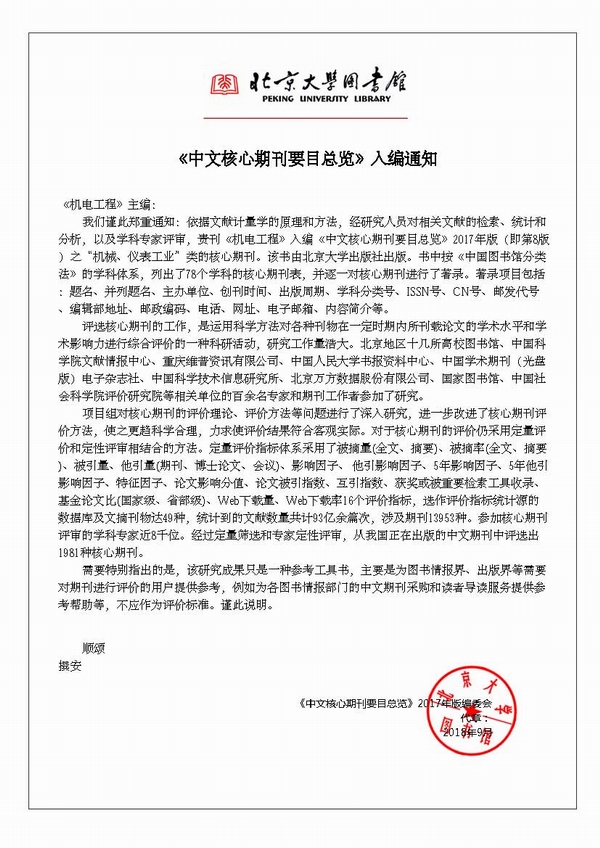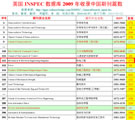
Founded in 1971 >
Chinese Sci-tech Core Periodicals >
British Science Abstracts (SA, INSPEC) Indexed Journals >
United States, Cambridge Scientific Abstract: Technology (CSA: T) Indexed Journals >
United States, Ulrich's Periodicals Directory(UPD)Indexed Journals >
United States, Cambridge Scientific Abstract: Natural Science (CSA: NS) Indexed Journals >
Poland ,Index of Copernicus(IC) Indexed Journals >
International Standard Serial Number:
ISSN 1001-4551
Sponsor:
Zhejiang University;
Zhejiang Machinery and Electrical Group
Edited by:
Editorial of Journal of Mechanical & Electrical Engineering
Chief Editor:
ZHAO Qun
Vice Chief Editor:
TANG ren-zhong,
LUO Xiang-yang
Tel:
86-571-87041360,87239525
Fax:
86-571-87239571
Add:
No.9 Gaoguannong,Daxue Road,Hangzhou,China
P.C:
310009
E-mail:
meem_contribute@163.com
ZHU Maotao1, ZHANG Hongxiang1,2, FANG Ruihua2
(1.School of Automobile and Traffic Engineering, Jiangsu University, Zhenjiang 212013,China;2.Shanghai Ganxiang Automobile Mirror Industry, Shanghai 201518, China)
Abstract: Aiming at improving the robust adaptation and realtime of the vehicle detection algorithm based on traditional machine learning, vehicle detection algorithm based on deep learning was researched. The principle of Faster RCNN detection algorithm was analyzed. Based on TensorFlow deep learning frame and made use of Python programming language, the Faster RCNN algorithm was realized. The road condition data set of four seasons was collected and labeled, 12 000 pictures was included. The data set was pretreat by three different method and the algorithm parameter of Faster RCNN was tuned by controlled experiment. The accuracy and speed of four detection algorithm, RCNN, SPPnet, Fast RCNN and Faster RCNN, was compared by variablecontrolling approach. The results indicate that the speed of vehicle detection based on Faster RCNN is 69 ms and the accuracy rate is 91.3%,the algorithm can realize realtime and high accuracy of vehicle detection.
Key words: vehicle engineering; assistance driving; vehicle detection; deep learning; region proposal networks; convolutional neural networks







